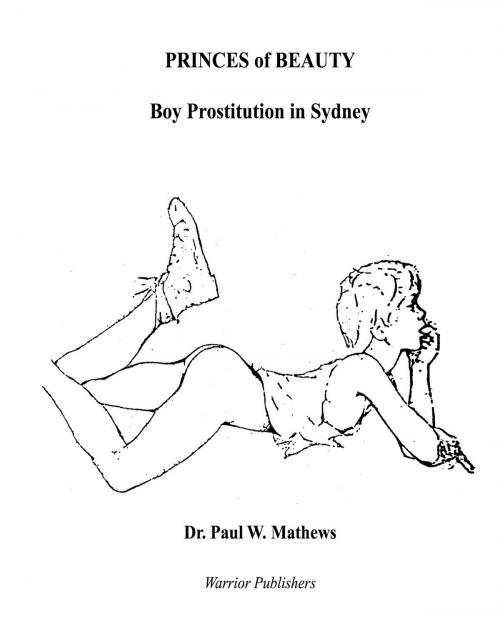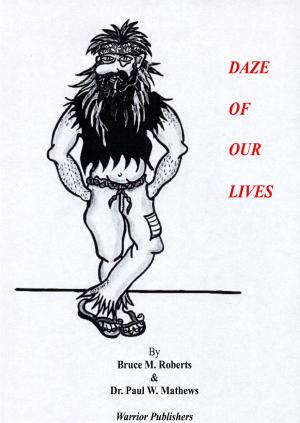Princes of Beauty. Boy Prostitution in Sydney
Nonfiction, Reference & Language, Law, Social & Cultural Studies, Social Science, Sociology| Author: | Paul Mathews | ISBN: | 9781311368256 |
| Publisher: | Warrior Publishers | Publication: | May 27, 2016 |
| Imprint: | Smashwords Edition | Language: | English |
| Author: | Paul Mathews |
| ISBN: | 9781311368256 |
| Publisher: | Warrior Publishers |
| Publication: | May 27, 2016 |
| Imprint: | Smashwords Edition |
| Language: | English |
This book address the yawning gap in both academic and general knowledge of male prostitution (in Sydney, Australia), with some comparison with UK & USA. Its central argument is that such prostitution is in part motivated by an aspiration to achieve, and that male prostitutes and their clients cannot be considered in purely psychological terms as sexually deviant or mentally aberrant. A Capitalist Success Ethic (CSE) accounts for juvenile delinquency and, in particular, the special form of delinquency known as male prostitution. The book argues that, because prostitution is a sociological phenomenon boys from both the working and middle classes make a largely conscious choice to be or become prostitutes vis-a-vis the classical stereotype of them wholly coming from broken homes and/or the working class and being victims of child abuse/incest and other physical or psychological childhood traumas. This counters recent discourse and notions about childhood sexuality. It challenges the notion that boys cannot make conscious decisions to engage in sexual activity; it denies that they have some form of power. It asserts that such sexuality occurs with consent among both the working and middle classes. It questions the commonly held view that male prostitutes and their clients are homosexual, and that prostitutes are dirty and unmotivated.
It is an accessible, sociological study, with some case histories; a comparison of overseas prostitution; and an extensive review of the characteristics and causes of and literature on prostitution.
This book address the yawning gap in both academic and general knowledge of male prostitution (in Sydney, Australia), with some comparison with UK & USA. Its central argument is that such prostitution is in part motivated by an aspiration to achieve, and that male prostitutes and their clients cannot be considered in purely psychological terms as sexually deviant or mentally aberrant. A Capitalist Success Ethic (CSE) accounts for juvenile delinquency and, in particular, the special form of delinquency known as male prostitution. The book argues that, because prostitution is a sociological phenomenon boys from both the working and middle classes make a largely conscious choice to be or become prostitutes vis-a-vis the classical stereotype of them wholly coming from broken homes and/or the working class and being victims of child abuse/incest and other physical or psychological childhood traumas. This counters recent discourse and notions about childhood sexuality. It challenges the notion that boys cannot make conscious decisions to engage in sexual activity; it denies that they have some form of power. It asserts that such sexuality occurs with consent among both the working and middle classes. It questions the commonly held view that male prostitutes and their clients are homosexual, and that prostitutes are dirty and unmotivated.
It is an accessible, sociological study, with some case histories; a comparison of overseas prostitution; and an extensive review of the characteristics and causes of and literature on prostitution.















